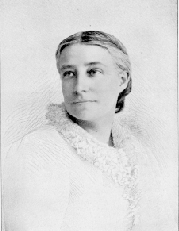A Quote by Bill Vaughan
The artist's imagination may wander far from nature. But as long as it is a living, moving power in his brain, isn't it just as real as any other natural phenomenon? The artist justifies his existence only when he can transform his imagination into truth.
Related Quotes
Clearly the hardest thing for the working artist is to create his own conception and follow it, unafraid of the strictures it imposes, however rigid these may be... I see it as the clearest evidence of genius when an artist follows his conception, his idea, his principle, so unswervingly that he has this truth of his constantly in his control, never letting go of it even for the sake of his own enjoyment of his work.
Every artist knows that there is no such thing as "freedom" in art. The first thing an artist does when he begins a new work is to lay down the barriers and limitations; he decides upon a certain composition, a certain key, a certain relation of creatures or objects to each other. He is never free, and the more splendid his imagination, the more intense his feeling, the farther he goes from general truth and general emotion.
The personality of the artist, at first a cry or a cadence or a mood and then a fluid, and lambent narrative, finally refines itself out of existence, impersonalises itself, so to speak. The aesthetic image in the dramatic form is life purified in and reprojected from the human imagination. The mystery of aesthetic like that of material creation is accomplished. The artist, like the God of the creation, remains within or behind or beyond or above his handiwork, invisible, refined out of existence, indifferent, paring his fingernails.
There is at the back of every artist’s mind something like a pattern and a type of architecture. The original quality in any man of imagination is imagery. It is a thing like the landscape of his dreams; the sort of world he would like to make or in which he would like to wander, the strange flora and fauna, his own secret planet, the sort of thing he likes to think about. This general atmosphere, and pattern or a structure of growth, governs all his creations, however varied.
The student who would build his knowledge on solid foundations, and proceed by just degrees to the pinnacles of truth, is directed by the great philosopher of France to begin by doubting of his own existence. In like manner, whoever would complete any arduous and intricate enterprise, should, as soon as his imagination can cool after the first blaze of hope, place before his own eyes every possible embarrassment that may retard or defeat him. He should first question the probability of success, and then endeavour to remove the objections that he has raised.
































